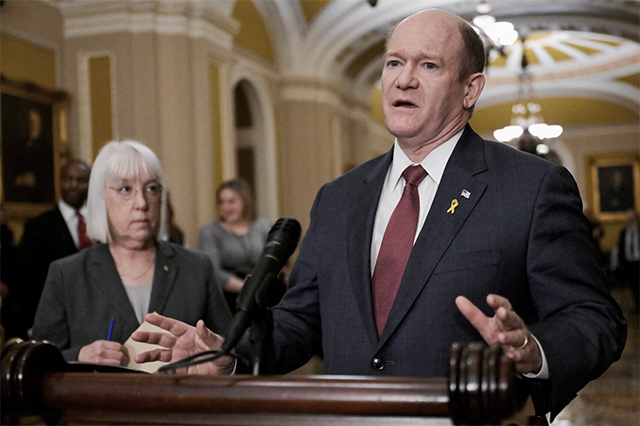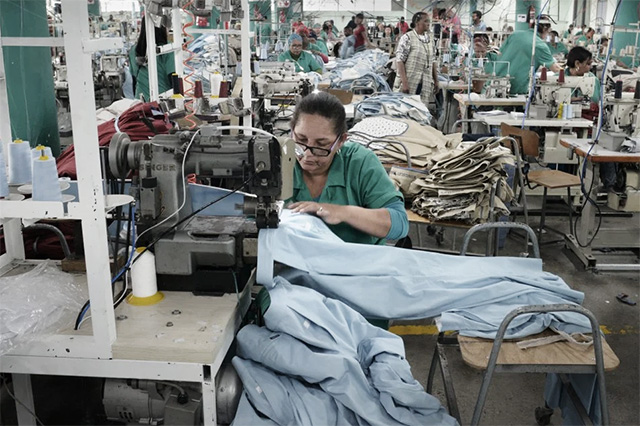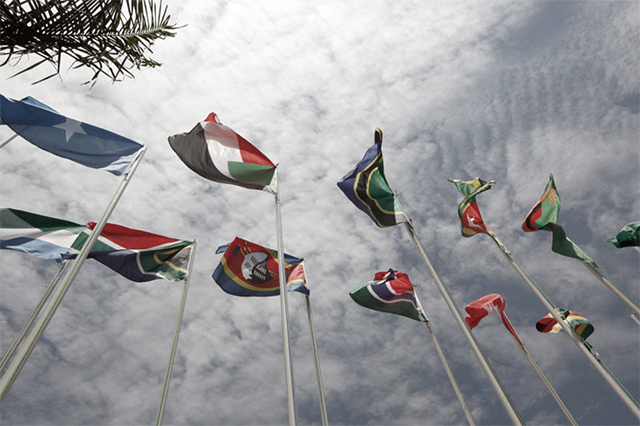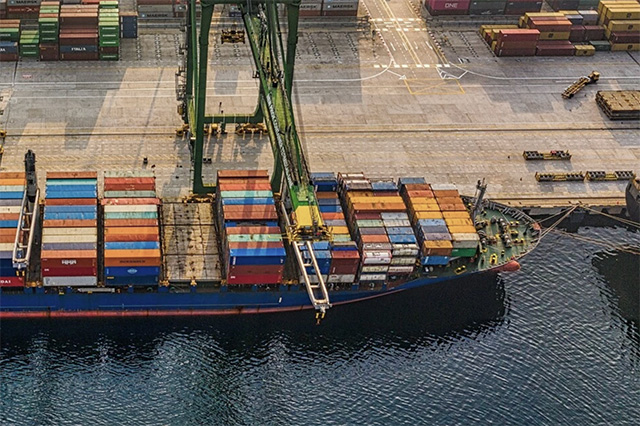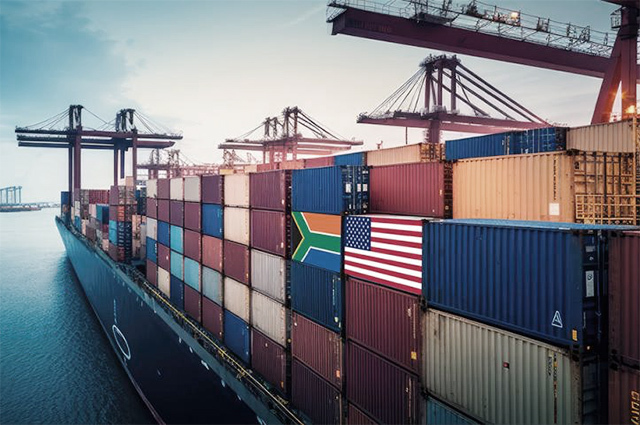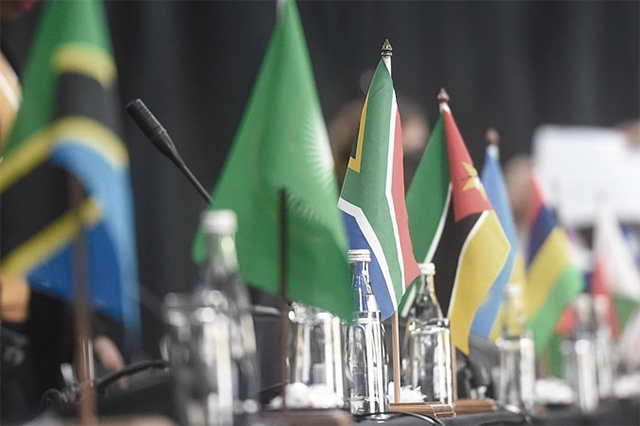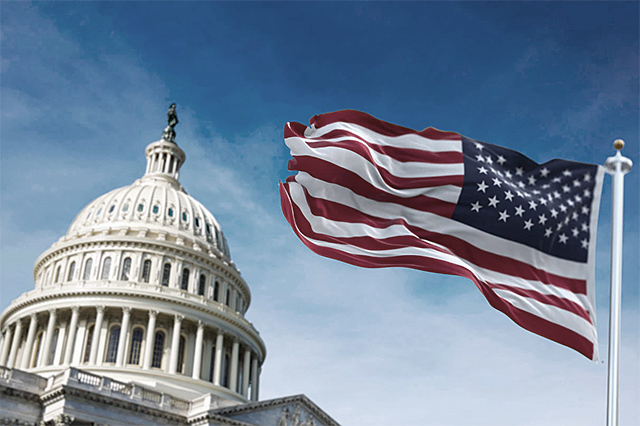US takes steps to extend African exports law by 10 more years, but behind the scenes, an almighty tug-of-war
Less than a month after US legislators introduced a bipartisan bill in Congress seeking to renew the signature African Growth and Opportunity Act (AGOA) for another 10 years, the proposed law sailed past its first hurdle with overwhelming approval in the Senate during a May 14 vote.
This paves the way for the AGOA legislation, which is part of the “Trade Preferences Extension Act of 2015,” to be sent to the House of Representatives, where it is expected to be further pared before it passes into law. [Download the legislation on AGOA.info at this link]
However, behind the scenes, an intense tug-of-war is on between players in the US and some beneficiary countries over what changes should be made to the law to greater benefit Africa.
Analysts say the tug-of-war could scuttle efforts to ensure AGOA is passed before September 30, 2015 when the current model of the law expires.
“The Senate’s move to re-authorise AGOA is a major milestone for the program[me], but it is still far from certain that bill will ultimately pass. There are indications that the House of Representatives will move to vote on the Trade Promotion Authority before AGOA, leaving the bill in a somewhat precarious position leading up to President Obama’s trip to Kenya in July,” wrIte Witney Schneidman and Andrew Westbury in a May 20, 2015 article for US think tank Brookings. Schneidman is a former US deputy assistant secretary of state for African affairs.
The grappling is largely over the likely changes to the new AGOA law and the concessions either side is prepared to cede. Among the major potential casualties could be South Africa, until recently Africa’s largest economy, which is locked in a protracted battle with American farmers over tariffs it imposes on chicken from the US. The battle could affect South Africa’s eligibility for AGOA post-2015, should a section of Congress have its way.
AGOA, a back-door through which the US currently allows 40 African countries to export 6,400 products quota- and duty-free to the world’s largest economy, was enacted on May 18, 2000 for an initial eight-year period. In 2004, it was extended to 2015.
Other side of coin
Since AGOA was introduced in 2001, according to figures from the US International Trade Commission (USITC), exports from African countries to the US have more than quadrupled. Other figures show that AGOA has in the last 15 years generated 100,000 jobs in the US as well as 350,000 direct jobs and at least a million indirect jobs in Africa.
The other side of the coin is not quite as dazzling, according to analysis by Rick Helfenbein, chairman of the board of the American Apparel and Footwear Association. He notes that the last four years of AGOA have shown a steady decline in trade, with total AGOA export numbers to the US (including Generalised System of Preferences, or GSP) falling from $68.2 billion in 2011, $43.1 billion in 2012, $34.8 billion in 2013, and $23.2 billion in 2014.
“Except for apparel and auto manufacturing (from South Africa), very few sectors have actually benefited from the treaty. To make matters worse, close to 80% of all the AGOA exports come from just four of the 40 countries (Nigeria, Angola, Chad and South Africa),” he explains in a blog article for the hill.com.
“If we look at the non-energy sector, just four of the countries (South Africa, Kenya, Lesotho and Mauritius) cover 90% of the exports.”
Those contrasting facts do not look to have warmed up the sentiments of some major players in Africa on the way the U.S does business with the continent. While some argue that the U.S should make some more concessions in the next AGOA law so Africa can benefit more, others such as the Congress of South African Trade Unions (Cosatu) believe the US now uses that deal with Africa as a whip with which to bully the continent into submission on other trade matters.
‘Arm-twist Africa’
While AGOA has contributed to the increase in South African non-mineral exports to the US to the point that it exports luxury cars, Cosatu, South Africa’s most powerful union, says America is using the deal to arm-twist its counterparts.
“The USA has attempted to use AGOA to extract concessions and bully SA into agreeing to further liberalise her market. This is unfortunate as AGOA is meant to be a non-reciprocal agreement which does not require eligible countries to liberalise their trade,” says Cosatu in an April 22, 2015 statement.
The point of contention, according to US officials, is that South Africa has decided to impose anti-dumping duties on certain imported poultry products.
“In our view, South Africa’s unfair and protectionist practices must be addressed before Congress would be justified in extending the AGOA programme,” the US National Chicken Council President Mike Brown is quoted by Bridges Africa, a monthly product of the Switzerland-based International Centre on Trade and International Development, as having said early this year.
However, Cosatu insists that South Africa has a right under the World Trade Organisation (WTO) to impose anti-dumping duties on dumped imports, which it says are sold at lower prices than locally produced goods. The trade union says the US instead wants to use AGOA to hold South Africa hostage, as it claims it has done with other AGOA countries.
“The poultry anti-dumping issue has been raised as an issue standing between SA and the AGOA. However, this is just a symbolic issue as there are deep-seated problems with US government’s interpretation of AGOA. The US has continued to maintain non-tariff barriers on AGOA imports with the result that many AGOA countries continue to export a few products and mainly in the energy sector,” says Cosatu, which wantsAGOA to remain non-conditional and preference based.
Several gripes
South Africa is not the only country that has a bone to pick with AGOA. In June 2014, the East African Community (EAC) released a position paper on how the five-member-country regional body could enhance trade and investment relations with the US under a new post-2015 AGOA programme.
In its paper, EAC notes that while its trade with the US had increased from $2,372 million in 2000 to $3,167 million in 2013 – with exports to US up from $186 million to $577 million and imports increasing from $328 million to $1,184 million – the balance of trade shows that the region is not getting a better deal than before.
“Despite the increase in the EAC exports to US, imports have exponentially grown a situation that has led to a continued increase of the trade imbalance against the EAC,” noted the regional body. “This situation will not enable the EAC achieve the intended objectives of AGOA which are to stimulate economic growth, encourage economic integration and facilitate sub-Saharan African integration into the global economy.”
According to EAC, the under-utilisation of AGOA by its member countries stems from issues such as the fact that AGOA is a unilateral programme that can be modified or terminated in favour and at the discretion of the US government.
For instance, according to other studies, since AGOA was instituted, 13 countries have lost their eligibility, though seven eventually had it restored.
Countries that lost their eligibility to AGOA for failure to adhere to political benchmarks set by the US and have never regained it include Central African Republic, Democratic Republic of Congo, Eritrea, The Gambia, South Sudan, and Swaziland.
Other factors that derail Africa’s efforts to reap the full benefits of AGOA include lack of predictability and sustainability of the law due to its limited lifespan, the expiry of the 3rd Country Fabric Provision in 2015, high transportation costs to the US market, uncertainty over eligibility due to annual reviews undertaken by the US, stringent rules of origin and stringent Sanitary and Phytosanitary (SPS) measures for agricultural products such as fresh produce and beef and which the majority of African producers are often unable to meet.
Unexploited gaps
Whether it is a consequence of challenges such as those named above or Africa’s own internal weakness, African countries do not quite exploit the full-range of opportunities that AGOA offers.
The USITC first opened the lid over that weakness in a May 2008 report, which said Africa was exporting under AGOA less than 50% of the full range of products that the law allows.
“Agoa’s continued success will require intensified efforts to promote greater diversification and competitiveness of Agoa trade,” said the report.
Despite efforts to diversify since then, that problem still persists, as admitted by the United States Trade Representative, Michael Froman, when he told a 2013 AGOA Forum in Addis Ababa, Ethiopia that “petroleum products still account for the largest portion of AGOA imports.” By some estimates, that is nearly 70% of all exports.
President Obama, who travels to Kenya in July on his fourth presidential trip to Africa, has however promised to offer Africa a helping hand. In an April 7, 2015 letter to Congress, Obama said his administration is “committed to expanding our efforts to help African businesses and governments to take advantage of all the benefits AGOA offers.”
President Obama has further urged Congress to consider a 10-15 year extension for AGOA, saying investors see it as a sufficient period to fulfill the programme’s full potential to mobilise capital commitments, promote growth and development and to integrate African stakeholders in global supply chains.
Among the key concessions that the proposed new AGOA law is expected to make is expanding the rule of origin to allow AGOA countries greater flexibility to combine inputs to meet the rule of origin for AGOA-eligible products, extending the GSP to 2017 and giving the US president the authority to include cotton products in the list of AGOA preferences available to LDCs.
With the United States keen to retain strong trade links to Africa in the midst of a growing challenge from the European Union (Africa’s largest trade partner) and emerging economies such as China (now Africa’s second largest trade partner after overtaking US), India and Brazil, Congress is likely to smoothen over some other cracks on some of the contentious issues in AGOA after 2015.
The question is whether Africa will see the efforts as sufficient to stake more on trading with the US over the next 10 years than any other country or region.





